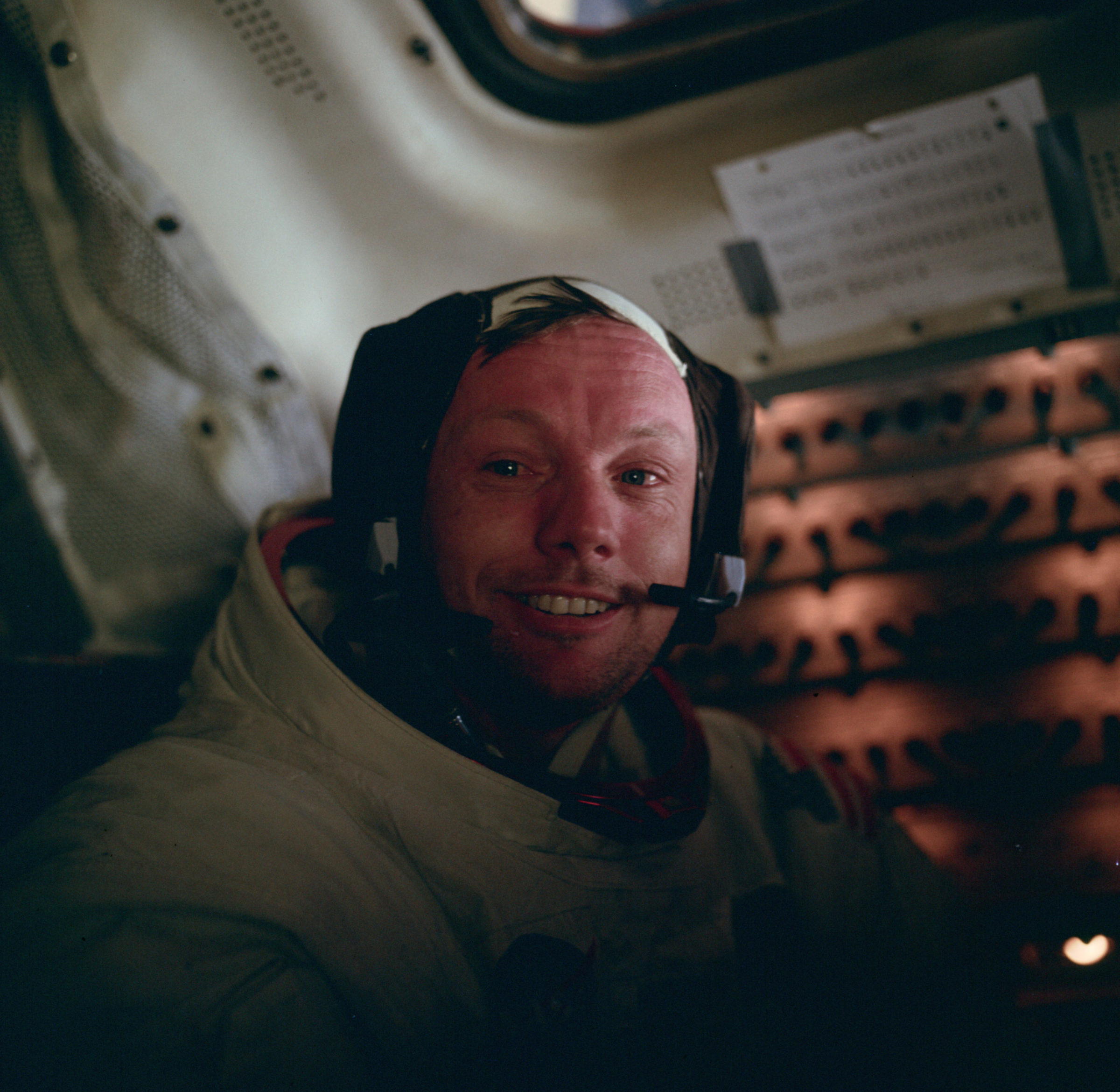Casey Dreier • Oct 15, 2018
A Joyless 'First Man'
Visceral moments of adventure cannot save a dreary film
As the credits began to roll for "First Man," my wife leaned over to me and whispered, "I am so tired of joyless movies about amazing events."
First Man, which follows the career of Neil Armstrong—played by Ryan Gosling—from his test pilot days with the X-15 through Apollo 11 is indeed as joyless as the Moon is colorless, as if the vacuum of space itself sucked out any human emotion beyond quiet suffering—of which we have an endless supply. Walking on the Moon may have been a thrilling, awe-inducing experience, but you would not know it from this film.
Hollywood movies often define character motivation through some foundational tragedy. The filmmakers latch on to Armstrong's real-life tragic loss of his young daughter to brain cancer, and repeatedly remind us of this loss throughout the movie in an effort to build to a contrived emotional resolution as Armstrong (spoiler alert) finally walks on the Moon.
Apollo presents a fundamental challenge to any filmmaker. Classic narrative benefits from clear dramatic tension and a main character with an emotional and personal arc. But Apollo, due to its immense scale, lacks both. The story is too large to tell in a regular narrative, with its story diluted between the hundreds of thousands of individuals who made it happen. The natural antagonists in this story—the Soviet Union—never acknowledged they were in a race to the Moon, and their lunar efforts were largely abandoned after the failures of the N1 rocket in the mid-1960s. The astronauts themselves were purposefully selected for their calm, focused demeanors and ability to work as a team. Consider how few movies there are about Apollo. Even Apollo 13 is an exception that proves the rule, as it focused on the mission that went wrong, and became a story of homecoming and of the human conflict with nature.
As a consequence, "First Man" attempts a character study in the context of Apollo, but never quite pulls it off. The film feels less like a story propelling forward and more like a series of events that just happen to follow one another. Ryan Gosling struggles to capture Armstrong, who, as discussed earlier, was famously reserved and lacking obvious motivation (Gosling is shown looking at the moon repeatedly throughout the film, as if to suggest some profound desire, but no more is provided).
The film is far stronger in its major set pieces: Gemini 8 and the Moon landing. Director Damien Chazelle rejects the clichéd visual repertoire of space movies, crafting an intimate and personal visual style. There are no external, downward shots of with a rocket launch shooting past you. The music has no prominent brass or heroic marches.
Shot in tight closeup with handheld cameras, Chazelle effectively places the viewer in the midst of action, as if you yourself are physically taking up space around the characters in the film. This immersive approach works best when inside spacecraft (the launch of Gemini 8, experienced entirely through the inside of the capsule, was particularly effective and was something I had never seen).
This style effectively presents the space race from a subjective, personal viewpoint, and we see little beyond the perspective experienced by Armstrong himself. It is a refreshing perspective in a genre otherwise dominated by romanticism.
The rest of the movie, which is split between Armstrong's home life with his wife Janet and two sons, and various trials in the astronaut office, is less engaging. The immersive handheld style grows tiresome, and I found myself just wanting a single, stable wide shot to establish where, exactly, we were and what, exactly, was going on.
After a riveting landing and moonwalk in which Ryan Gosling is sad, the movie ends on a quiet, sad note between Armstrong and his wife. There are no celebrations for the feat, or even a smile of accomplishment. You would not know from watching it that anyone in the space program had any fun at all.
As a space fan, I enjoyed the movie for its depictions of the experience of spaceflight itself. But as person, this is not a film I will often return to. There is a richness and complexity of human experience beyond what is depicted here, and to ignore the awe and joy of exploration in a misguided effort to create emotional drama undermines the effectiveness of this film to capture a person, not just an emotional landscape as uninviting as the Moon.
And you don't have to trust, me, just ask this happy guy:

Support our core enterprises
Your support powers our mission to explore worlds, find life, and defend Earth. You make all the difference when you make a gift. Give today!
Donate

 Explore Worlds
Explore Worlds Find Life
Find Life Defend Earth
Defend Earth

